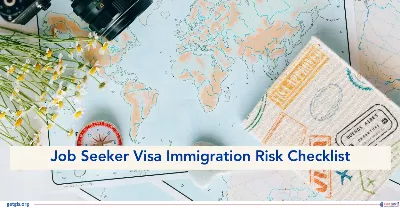EU Blue Card for Indians in 2026: Benefits, Requirements, & Application Process
Updated On
-
Copy link
-
-
The EU Blue Card enables skilled professionals to live and work in the EU’s 25 countries. Though the minimum salary threshold might vary the general requirements and benefits, and the application process are almost similar for all the states.
Limited-time offer : Access a free 10-Day IELTS study plan curated for you

Table of Contents
- What is an EU Blue Card?
- What are the Benefits of the EU Blue Card?
- Eligibility Requirements for the EU Blue Card in 2026
- Documents Required to Apply for the EU Blue Card in 2026
- How to Apply for an EU Blue Card From India in 2026?
- EU Countries Issuing EU Blue Cards in 2026
- Details of EU Blue Card Validity 2026
- EU Blue Card Rejection Reasons in 2026
- Secure Your EU Blue Card With ����ÿ�մ��� Assistance
Are you a skilled professional aspiring to work in Europe? Well, the EU Blue Card could be the best pathway for your work and residency permit. In 2023, EU member states issued about 89,037 Blue Cards to highly skilled non-EU nationals, marking a record high, and with Germany alone issuing above 69,000 EU Blue Cards (i.e., 78% of the total), emphasising its strategic importance across Europe.
In this article, we will explore in detail about the EU Blue Card for Indians, its benefits, requirements, member countries, and more.
What is an EU Blue Card?
The EU Blue Card is a type of residency permit designed for skilled foreign nationals from outside the European Union (EU) who wish to work in an EU country. This permit allows individuals to enter and live in a specific EU country for the purpose of employment.
The primary purpose of the EU Blue Card is to streamline the process of admitting highly skilled professionals from non-EU countries into the EU. It aims to simplify the procedures involved in obtaining work authorization and improve the legal status of those who are already residing in the EU.
Explore German PR Requirements for Blue Card Holders
What are the Benefits of the EU Blue Card?
Becoming an EU Blue Card holder comes with numerous advantages. Here is a summary of the key benefits and advantages of the EU Blue Card.

- Equal Work and Salary Conditions: As an EU Blue Card holder, you are entitled to the same working and salary conditions as national citizens.
- Free Movement Throughout the EU: You have the freedom to move and reside within any EU member state.
- Social Rights: EU Blue Card holders enjoy various social rights, including access to education, economic opportunities, cultural activities, human rights, and healthcare.
- Family Reunification: You have the right to be joined by your family members in the EU.
- Permanent Residency: After working in the first hosting state for 33 months (or 21 months if you achieve a B1 language level), you can apply for a permanent residency permit.
Please note that all benefits are provided to EU Blue Card holders except for housing, loans, and grants. Additionally, EU Blue Card holders are allowed to temporarily leave the EU and return to their home countries or non-EU states for up to 12 consecutive months without losing ownership of their EU Blue Card.
Also Read: How To Get a Job in Europe From India in 10 Simple Steps?
Eligibility Requirements for the EU Blue Card in 2026
In order to ensure a smooth process of obtaining the EU Blue Card, it is essential to consider the following eligibility criteria. These criteria play a crucial role in determining your suitability for the Blue Card.
- Must at least have a bachelor’s or Master’s degree or equivalent
- Must have at least 5 years of work experience in your field
- Must secure a work contract ot a job offer for highly skilled employment for at least 12 months
- Must meet the minimum salary threshold established by the respective EU country where you intend to work
- For regulated professions, proof of meeting the national legal requirements is mandatory
Documents Required to Apply for the EU Blue Card in 2026
To ensure that you have a smooth and faster EU Blue Card approval, it is necessary to attach the following EU Blue Card requirements when submitting your application. These include:
To ensure a smooth process of obtaining the EU Blue Card, it is essential to submit the following required documents. These documents play a crucial role in the application process and eligibility assessment for the EU Blue Card.
|
Requirement |
Description |
|---|---|
|
Application Forms |
Completed application form, signed by either you or your employer. |
|
Passport Requirements |
|
|
Passport Photos |
Two identical photos meeting ICAO standards, taken within the last for three months. |
|
Employment Documentation |
|
|
Professional Information |
Up-to-date curriculum vitae (CV). |
|
Application Fee |
Proof of application fee payment. |
|
Health Insurance |
Proof of health insurance. |
|
Salary Requirements |
Evidence that your salary exceeds the average in the host country by the required multiple. |
|
Employer Declaration |
Written declaration by your employer explaining reasons for employment and the benefits gained. |
|
Background Check |
Proof of no threat to public policy, security, or health of the host country. |
Also Read: Which are the Safest Countries in Europe to Visit
How to Apply for an EU Blue Card From India in 2026?
To obtain an EU Blue Card in Germany, the process involves several steps. The below-mentioned are some of the easy steps filtered for you to succeed in the process of getting an EU blue card.
Step 1 - Secure a Job Offer: Initially, you need to secure a job in Germany. Once you have a job offer, you can start the process of obtaining an EU Blue Card.
Step 2 - Set Up a Visa Appointment: Contact the German embassy or consulate in your home country to schedule a visa appointment. If there isn't a German embassy in your country, you might need to travel to a neighboring country for your application.
Step 3 - Gather Required Documents: The German embassy will provide you with a checklist of necessary documents for your German work visa application. These documents typically include your employment contract, academic qualifications, and proof of travel health insurance, among others.
Step 4 - Submit Visa Application: On the scheduled appointment day, you'll submit your visa application along with the required documents and pay the associated fees. In some cases, you may be required to attend an interview as well. It's important to note that this visa serves as an entry visa for employment purposes. The EU Blue Card application comes later, after your arrival in Germany.
Step 5 - Wait for a Decision: After submitting your visa application, the processing time can range from one to three months before you receive a decision.
Step 6 - Travel to Germany: If your visa application is approved, you will be granted a visa that allows you to enter Germany legally. Upon arrival, you must complete several essential tasks, including registering your residence, obtaining German health insurance, and opening a bank account.
Step 7 - Apply for the EU Blue Card: Once you have settled your residence, health insurance, and banking matters, you can apply for the EU Blue Card at the German Foreigner's Authority, known as the Ausländerbehörde.
It's worth mentioning that citizens from specific countries, such as Australia, Canada, Israel, Japan, New Zealand, Northern Ireland, South Korea, the United Kingdom, and the United States of America, are exempt from the requirement to apply for an entry visa for employment at the German embassy. They have the option to apply directly for an EU Blue Card at the German Foreigner's Authority.
EU Countries Issuing EU Blue Cards in 2026
Let's explore the Minimum Salary Threshold for the EU Blue Card in 2022. The salary is largely determined by the company that sponsors your EU Blue Card application. However, it's important to note that there is a specific minimum salary requirement that is legally established and upheld.
|
Country |
Approx. Salary Threshold per Condition |
|
Austria |
EUR 47,855 gross annually |
|
Belgium�� |
EUR 63,586 per year (Flanders) EUR 66,377 per year (Brussels) |
|
Bulgaria |
EUR 9,933 per year |
|
Croatia |
EUR 23,670 gross per year |
|
Cyprus |
EUR 39,682.80 – €43,800 |
|
Czechia |
EUR 53,417 per year |
|
Estonia |
EUR 24,790 per year |
|
Finland |
EUR 62,508 per year |
|
France |
EUR 53,836 per year |
|
Germany |
EUR 48,300 annually for general occupations�� EUR 43,759.80 annually for shortage occupations�� |
|
Greece |
EUR 32,000 per year |
|
Hungary |
HUF 9,283,788 per year |
|
Italy |
EUR 33,500 per year |
|
Latvia |
EUR 30,312 per year |
|
Lithuania |
EUR 28,428 per year |
|
Luxembourg |
EUR 58,968 per year |
|
Malta |
EUR 33,264 per year |
|
Netherlands |
EUR 73,716.48 (high threshold) per year EUR 58,980.96 (reduced for recent grads) |
|
Poland |
PLN 147,270.96 per year (EUR 34,564.49) |
|
Portugal |
EUR 21,030 per year |
|
Romania |
EUR 20,782 per year |
|
Slovakia |
EUR 21,945 per year |
|
Slovenia |
EUR 50,472 per year |
|
Spain |
EUR 38,844 per year |
|
Sweden |
SEK 598,500 per year (EUR 54,133) |
Read Next: Best countries in Europe to Live and Work for Indians in 2026
Details of EU Blue Card Validity 2026
The details of the EU Blue Card validity in 2026 and the time frame for the renewal process based on your application are as follows:
|
EU Blue Card Validity and Renewal Process |
Description |
|---|---|
|
Standard Validity Period |
The standard period of validity for an EU Blue Card is commonly set at three years. The duration of the EU Blue Card is tied to the length of your employment contract. |
|
Renewal Option |
If your work contract is extended beyond the initial three years, you can renew your EU Blue Card accordingly. |
|
Duration Based on Contract |
If your work contract is valid for more than a year but less than three years, your EU Blue Card will be valid for the exact period of your contract, e.g., 30 months. |
|
Grace Period |
When your EU Blue Card is approaching its expiration date, you are granted an additional grace period of three months. This allows time for renewal or seeking alternative employment. |
|
Flexibility in Adjusting Status |
The grace period of three months offers flexibility in adjusting your status without unnecessary disruptions. |
|
EU Blue Card Renewal Application |
When renewing your EU Blue Card, you typically need to submit a copy of your previous EU Blue Card as part of your application to ensure the continuity of your status and streamline the renewal process. |
|
Legal Work and Residence During Renewal Application Processing Period |
While your EU Blue Card renewal application is being processed (up to 90 days), you are allowed to legally work and reside in the country where you hold the EU Blue Card, ensuring continuity of activities and status. |
EU Blue Card Rejection Reasons in 2026
Before we conclude this exclusive guide to the EU Blue Card for Indians, let's take a quick look at the reasons for EU Blue Card rejections that could stand as a hurdle in your application process and visa approvals. These include:
- If you do not meet the eligibility criteria for an EU blue card country.
- Your application contains false or incorrect information
- You are considered to be a threat to the EU's public policy, security, or public health
- In case a national or EU worker or a non-EU worker already present in the country can fill the vacancy.
- Your employer has been found guilty of employing irregular migrants without documents.
- Cases like if your home country lacks skilled workers in your sector, it could also result in rejection.
Secure Your EU Blue Card With ����ÿ�մ��� Assistance
The EU Blue Card is the perfect pathway for skilled professionals to build a rewarding career in Europe. However, navigating the eligibility criteria, requirements, and application process for the EU countries could be complex if not done under the right guidance.��
To make your EU blue card journey seamless and more efficient, consider reaching out for expert guidance from ����ÿ�մ���. Our team provides personalised end-to-end guidance with the visa process, post-landing assistance, and job search guidance to help you plan your European career with confidence.
Also Read
Limited-time offer : Access a free 10-Day IELTS study plan curated for you

Frequently Asked Questions
Is it possible to bring family members on the EU Blue Card?
Can I get permanent residency through the EU Blue Card?
Can I change jobs with an EU Blue Card?
Can I travel within the Schengen Area with an EU Blue Card?
Can the EU Blue Card be transferred between EU countries?
What are the benefits of holding an EU Blue Card?
Can EU blue card holders leave the EU temporarily?





